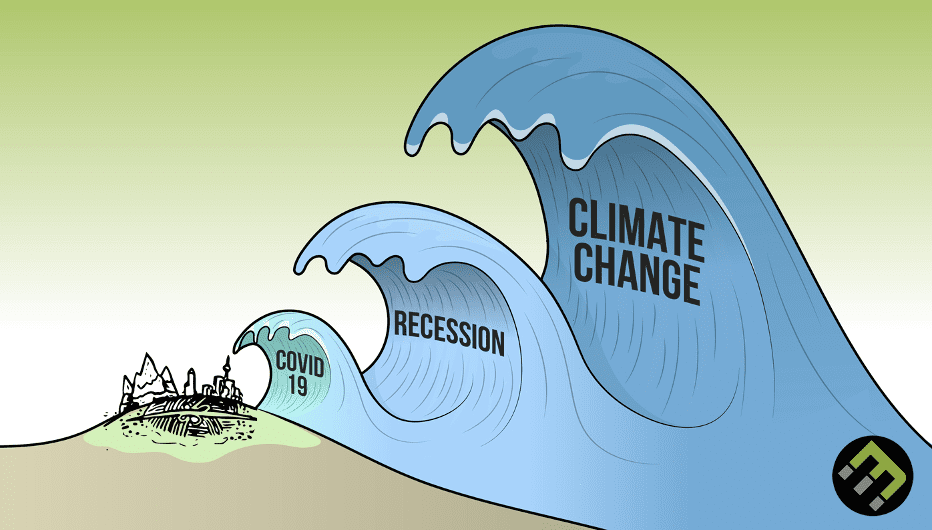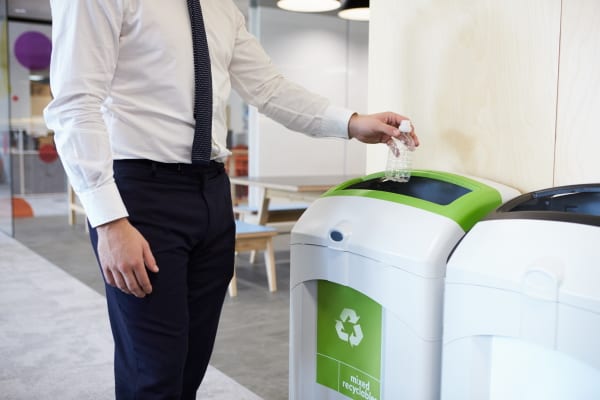The COVID-19 pandemic is challenging the way we host events, most obviously through heightened health and safety standards. While the industry welcomes this adaption, there are some concerns that sustainable event practices could be abandoned in the process.
Don’t throw the baby out with the bathwater
Morwesi Ramonyai is an impact entrepreneur in the green economy and the Vice Chair of the Event Greening Forum (EGF), a non-profit organisation that promotes sustainability within the events sector. She acknowledges that COVID-19 is a pressing concern right now, but stresses that unsustainable practices are contributing to a far larger long-term problem that society can’t avoid; “The ultimate impacts of climate change can have a much bigger negative effect if we don’t address it urgently.”
“It is not about compromising the one standard for the other, but ensuring that all events are safe and sustainable.”
Grace Stead, a sustainability practitioner and the Director of Steadfast Greening, agrees and says, “It is not about compromising the one standard for the other, but ensuring that all events are safe and sustainable.
“Regardless of the current pandemic, or the economic crises or the latest fashion, event greening is a process that allows for the incorporation of sustainable principles and practices within the events industry. It is not a nice-to-have or an add on. It is an essential way of doing business that provides a more sustainable solution over the long term.”
This image by EcoMatcher, as published in its article ‘What’s Next for Corporate Sustainability in a Post-COVID19 World’, sums it up best:

Practical event greening strategies you can do, right now
While the challenges that COVID-19 presents can feel all-consuming, the truth is that event greening – that is, incorporating sustainable practices and thinking into your events, which promote environmental, social and financial benefits – is not as daunting as it sounds.
“There are actually so many event greening practices that can still be implemented – and must be, now more than ever.”
Lisa Jade Hutchings (Merven) and Nthabiseng Mathole, Head Ginger and Head Biscuit respectively of sustainability consultancy, project management and training start-up GingerBiscuit, say, “There are actually so many event greening practices that can still be implemented – and must be, now more than ever.”
They add, “Contrary to popular belief, event greening also has the added benefit of cost reduction when implemented and managed well, reaching far beyond ‘just’ the event itself. We see this through supply chains being given the opportunities to revamp, upskill and develop through best practice within the space.”

Their advice includes to choose an environmentally conscious venue that has a comprehensive health and safety strategy and sustainability strategy (such as water- and energy-saving infrastructure), and to “produce, choose and use local options wherever possible”, as this has environmental, social and economic benefits and is essentially a low hanging fruit.
Social development and upliftment should also motivate procurement and planning decisions. For example, they suggest that you look for opportunities to up-skill young professionals, train and employ people from the surrounding communities, book local artists, and consider creating a legacy project which ties into not only the event, but also the communities hosting the gatherings.

Greg McManus, EGF Chair, believes the biggest sustainability challenge in events post-COVID will be an increase in single-serve items for health and hygiene reasons, which will lead to increased volumes of event waste. Based on this, he says, “My advice would be to increase awareness of separation of waste at source, and to create systems that encourage this both in the guest and service areas. For example, the disposal of masks, gloves and protective gear must be focussed-on, because some of this is medical waste and should not be sent to landfill.”
Bear in mind that non-medical waste can be safely recycled or composted, and this remains preferable to sending it to landfill.
Bear in mind that non-medical waste can be safely recycled or composted, and this remains preferable to sending it to landfill. Separate waste bins will be needed for different types of waste, to reduce the need for waste sorting, and to prevent cross contamination between waste streams (such as medical waste contaminating recyclable waste).

Another responsible waste management tip from Stead is to use compostable food containers if disposable options are needed; “Food containers inevitably contain left over food, so ensure that all the organic waste is composted and put back into the earth again, rather than sent to landfill.”
She also suggests that re-usable items – such as cloth masks – are preferable to disposable alternatives, and have the advantage of empowering delegates to take control of their own health and safety.
Another important consideration Ramonyai highlights, which is often forgotten, is that “Event greening is a process involving planning, implementation and reporting, and can proceed without compromising the health and safety of others – especially the off-site aspects of planning and report writing, as well as monitoring of data collection during the event.” Data collection is critical to evaluating how successful an event was in achieving its sustainable goals, and where improvements can be made.
Now is the time to innovate and consider new ideas
The lockdown has forced many events to go online. According to Meet Green, an event can reduce it’s carbon footprint by as much as 90% if it is held online, instead if face-to-face. For this reason, it is hoped that event planners will continue to use online platforms as another option in the future, whether for virtual or hybrid events. But face-to-face events will return, and when they do it makes sense to manage them responsibly – safely and sustainably.
“[W]hat may work today, may not work tomorrow, but therein exists endless possibilities.”
Hutchings and Mathole sum it up beautifully when they say, “This is a period of extreme circumstances, we have to be open to not only learning ourselves, but also upskilling and supporting others in the industry, while adapting accordingly as times goes – what may work today, may not work tomorrow, but therein exists endless possibilities.”




